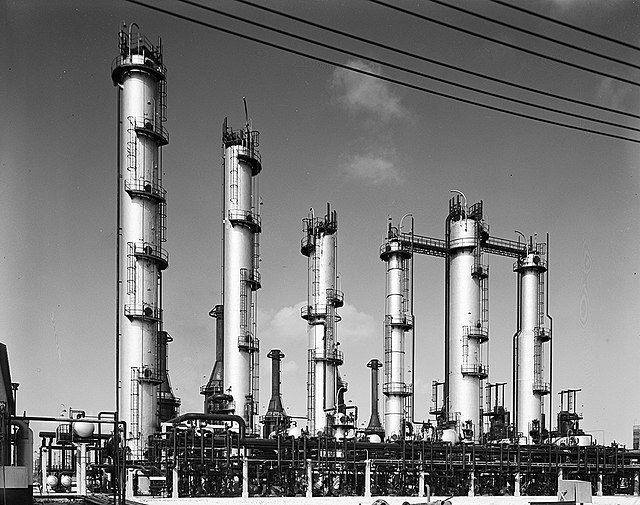Climate Change and The Russo-Ukrainian Conflict: Will Ukraine Be Able to Act?
- Vera Fortun Marco
- Mar 23, 2024
- 4 min read
The Russo-Ukrainian conflict has now been ongoing for a decade and the climate impacts are no longer deniable. Attention is now turning towards Ukraine’s determined attitude to abide by the Paris Agreement as the international system questions its ability to react to these climatic setbacks.
COP28
During the COP28 meeting in 2023, Ukraine showed its commitment to achieving net zero, phasing out coal by 2035, and supporting the global ambition to triple renewable energy capacity and double the rate of energy efficiency improvement. Showing how Ukraine has become proof that “even in challenging circumstances, sustainable practices can be integral to recovery and development.”.
Ukraine has set itself the goal of becoming a “green energy hub”. Yet, the impact of the war on the country’s economy and power generation plants implies that it will not be able to afford the cost of this task. For instance, how will it gather the €450 million necessary to complete its planned de-carbonisation policy and the $750 billion needed for its ten-year recovery plan?
The Paris Agreement
As mentioned, Ukraine has been acting like a law-abiding nation throughout the conflict. This has included a strong desire to abide by the Paris Agreement treaty. The Paris Agreement, as ratified in 2015, states that signers must have achieved a global warming of less than two degrees Celsius by 2050 and must follow the recommendations established during the COP conferences. This means that for Ukraine to satisfy the treaty it must not only continue acting in compliance with climate change agreements, but it must start to make climate change policies a priority.
How is The Conflict Currently Setting Ukraine back?
Since the start of Russia’s full-scale invasion of Ukraine in 2019, Ukraine has faced serious economic and power generation limitations. This has set back the state’s climate change objectives significantly. Russia’s weaponization of energy supplies has led to the destruction of ninety percent of Ukraine’s wind power and fifty percent of its solar power since the beginning of the war. Furthermore, since the start of the war, Russia has targeted many power generation plants leading to devastating effects. This can be exemplified by the September 2022 attacks on the two Nord Stream pipelines which led to “the biggest ever point source release of methane”.
Moreover, the climatic costs of fighting alone have only made reaching the state’s climate goals more difficult. It is reported by the UNFCCC that the total emissions linked to the war on Ukraine have amounted to “150 million tonnes of CO2 equivalent as of September 2023 – representing $9.6 billion in global climate damage.”
Likewise, a report by the International Monetary Fund concluded that “The effects of the war will constitute major setbacks to progress on climate objectives”. The report illustrates the real possibility that the economic aftermath of the war for Ukraine will not allow for the reconstruction and recovery of Ukraine’s pre-war sustainable energy power plants.
Is There No Hope?
Nonetheless, the war has had some unintentionally positive effects on attitudes towards climate change. The COP28 declared the “Beginning of the end for the fossil fuels era” implying an international consensus on the gravity of the climate crisis. Likewise, the conflict has substantially decreased the imports to EU countries of Russian fossil fuels. Before 2022 Russia was the EU’s largest source of imported carbon and fossil fuel energy, making it the 4th largest greenhouse gas emitter in the world. However, since then not only have European states been deterred from importing Russian energy, but the European Commission itself has launched the REpowerEU programme which aims to phase out imports of Russian fossil fuels by 2027. This EU plan hopes to encourage states to switch to more renewable sources of energy by removing the market’s main supplier of non-renewable energy, as well as sanctioning Russia’s actions.
Finally, Ukraine’s need for international aid and protection during the conflict has made the state more likely to comply with non-binding international legislation on climate change. As a member of the European Union, it is subject to the Carbon Border Adjustment Mechanism which is set to start its financial enforcement in 2026. Consequently, Ukraine’s business owners are now seeking renewable energy options when rebuilding their industries to avoid further losses. Similarly, before 2021 Ukraine was the 31st largest global emitter of Greenhouse gases. In the year before the war Ukraine had made considerable efforts to build renewable sources of power generation which have now come to a halt. Yet, experts from the International Monetary Fund have predicted that “in the future, restarting the transition to renewable energy has the potential to lower the costs of electricity generation, and improve energy security which could carry important benefits”. This implies that Ukraine’s economic situation will alter at the same rate that recovery costs will fall, making renewable energy generation a possibility for Ukraine.
Overall, the war on Ukraine has significantly set back Ukraine’s climate change objectives, however, it has also instigated a move away from fossil fuels for many European states and raised awareness about the urgency of the current climate situation.
IC: Oleksandr Ratushniak / UNDP Ukraine on Flickr.



